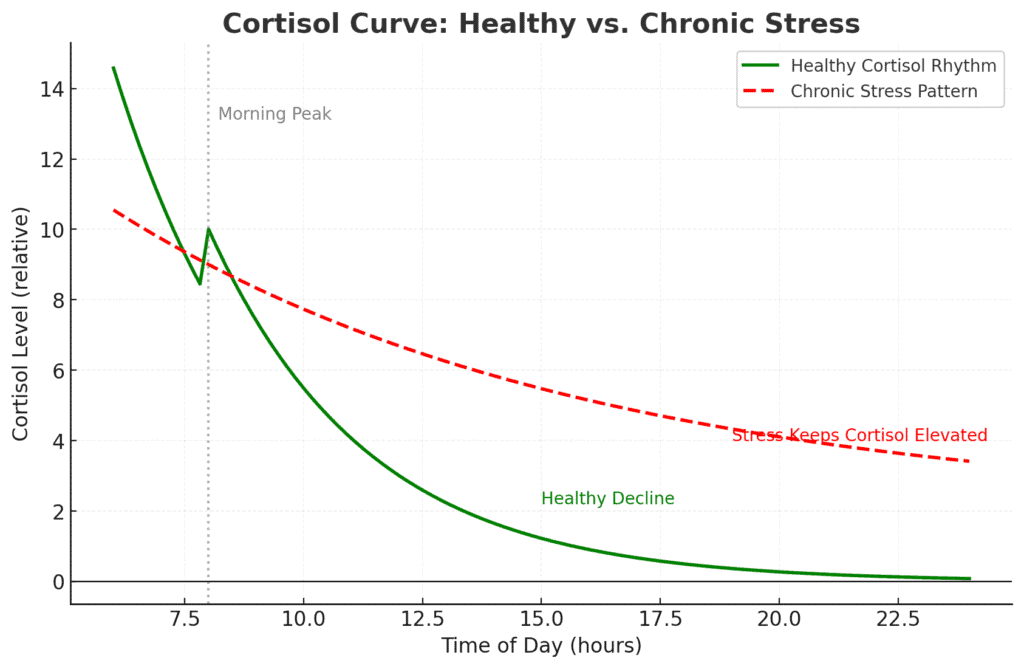In holistic psychiatry, cortisol plays a central role in understanding how the mind and body respond to stress. Far from being a “bad” hormone, cortisol is essential for regulating energy, metabolism, and daily alertness. But when stress accumulates and disrupts the body’s natural cortisol rhythm, it can lead to fatigue, poor sleep, and long-term health concerns — underscoring why a holistic approach to stress and cortisol balance matters more than ever.
Cortisol’s Role in the Body
- Produced by adrenal glands, peaking in the morning (“cortisol awakening response”).
- Supports glucose metabolism, inflammation control, and memory consolidation.
- Chronic elevation disrupts immunity, increases cardiovascular risk, and impairs executive function.
The Modern Stress Problem
- Demanding schedules, constant digital stimulation, irregular light exposure.
- Executives, clinicians, and high-performing students are especially at risk.
Holistic, Evidence-Based Interventions
- Light exposure: 10–15 minutes of natural light after waking anchors circadian rhythm.
- Breathwork: Slow diaphragmatic breathing reduces sympathetic arousal, shown in HRV studies.
- Mindfulness / meditation: Regular practice reduces amygdala hyperactivity and lowers cortisol reactivity.
- Nutrition: Consistent meals with complex carbs and adequate protein stabilize glucose, preventing stress spikes.
- Sleep hygiene: Blue-light reduction at night and consistent bedtimes lower evening cortisol.
Managing stress hormones is not just wellness — it’s medicine. Supporting natural cortisol rhythms can improve mood stability, cognitive performance, and even resilience to depression and anxiety.
By aligning daily habits with biology, we can turn cortisol from a source of burnout into a rhythm of resilience. Future Psychiatry integrates science with holistic approaches to support individuals who expect precision, discretion, and lasting impact.

Explore our insights at www.futurepsychiatry.com
Future Psychiatry is a concierge integrative psychiatry practice in New York City, focused on luxury, evidence-based mental health care. This article was prepared by Jafar Novruzov, PMHNP-BC, Founder of Future Psychiatry.

Future Psychiatry is a concierge practice in New York City specializing in integrative psychiatry, anxiety treatment, and holistic mental health. Founded by Jafar Novruzov, PMHNP-BC, the clinic provides luxury, evidence-based psychiatric care designed for long-term wellness.
